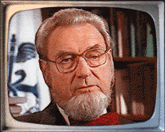(Editor’s Note: In March 1994, ABC killed the “Turning Point” documentary that follows. ABC Executive Vice President Paul Friedman called “Tobacco Under Fire” a “boring” rehash. We disagree. Even two years later, the tape presents significant news breaks. The MoJo Wire invites you to decide yourself.)
[fade in to cigarette factory]
Narrator: For the American tobacco industry, this may be the worst year in the past two centuries. Hundreds of cities and towns have passed laws limiting cigarette smoking. In more and more places, smokers have become outcasts, banished outdoors to indulge in what many now consider a dirty and dangerous habit. And the massive cigarette tax to fund the health care program inevitably means fewer smokers and fewer profits.
Dr. C. Everett Koop: There’s a lot of money involved here, and you have to remember that the domestic future of the United States cigarette manufacturer is dismal.
Narrator: Dr. C. Everett Koop was Ronald Reagan’s surgeon general and the most committed anti-smoking activist to ever hold the job.
Koop: This is a losing industry in this country. Eventually we will have a smoke-free society here, and if that’s the case, you’ve got to find some place to get rid of this tobacco, and so, why not pick people that can’t fight back.
Narrator: Asia, home to nearly half the world’s inhabitants. Its culture and traditions have survived unchanged for centuries. But beginning in 1986, a new wave of American culture washed over Asia.
[commercial]
Narrator: American cigarettes have come to Asia in a big way.
[commercial]
Narrator: And the tobacco companies could not have done it without the direct help of President Ronald Reagan.
 Koop: Before he was inaugurated, there was correspondence between the chief executive officer of R.J. Reynolds and the president, calling attention to the fact that the tobacco company would hope that this president would not be too tough on the tobacco industry. And the president wrote back — I don’t know who wrote the letter for him, but I could hardly believe it when I eventually read it — My Administration will be too busy with more important things. (QuickTime video, 2.4 mb)
Koop: Before he was inaugurated, there was correspondence between the chief executive officer of R.J. Reynolds and the president, calling attention to the fact that the tobacco company would hope that this president would not be too tough on the tobacco industry. And the president wrote back — I don’t know who wrote the letter for him, but I could hardly believe it when I eventually read it — My Administration will be too busy with more important things. (QuickTime video, 2.4 mb)
Narrator: Not only did the president do nothing to hurt the major tobacco companies, Ronald Reagan — a former pitch man for Chesterfield Cigarettes — actively helped them realize their long-range plans. Eight years ago, Reagan ordered the United States trade representative to, in effect, declare economic war on government-run tobacco monopolies in Asia. His main weapon: a presidential order threatening huge tariffs on the exports of any nations the president believed discriminated against American tobacco. Beginning with Japan, our government fought for the tobacco industry’s right not only to sell cigarettes, but to advertise them. Japan caved in after a year of pressure. Television commercials for cigarettes that have been illegal in the United States for more than 20 years now play on Japanese TV and radio.
[Lucky Strike commercial in Japanese]
Mackay: The reality is that within your country, you are reducing your tobacco epidemic with a tremendous measure of success. You’ve developed experience and expertise in doing so. And is that being given to us? The truth is, it’s not. Instead we’re getting completely the opposite side of the argument. We’re getting your tobacco companies pushing into our countries with the products, advertising, promoting them, and part of your government solidly supporting that penetration.
Narrator: Dr. Judith Mackay lives in Hong Kong, but she has spent much of her time traveling around Asia helping local authorities resist U.S. government demands to allow the advertising and promotion of American cigarettes.
Mackay: What it simply says is that if you do not allow in our tobacco products and if you do not allow us to advertise them, then your products in turn will not be allowed into the USA, and that is an extremely powerful threat.
Reporter: And it was always the double-edged sword: that not only can we bring the stuff in, but we demand that we can advertise.
Mackay: The two came together.
Narrator: On Japanese television alone, cigarettes rose from fortieth to second among top advertisers once the American companies arrived. Today, Japanese girls are four times as likely to smoke as their mothers.
Mackay: They’re actually using an idealized Western culture and Western cultural images to try and persuade Asian youths to start smoking. But they’ve certainly done their market research on it and they know what they’re doing.
Reporter: But beyond the billboards or whatever, what else do they do to convince these young people to start smoking?
Reporter: Well, of course there’s an immense amount of sponsorship now throughout Asia of sports, art, the pop stars. We have seen people like Madonna, Paula Abdul, Bon Jovi, going around Asian countries under the banners of tobacco companies.
Narrator: And in countries with strict advertising bans, the U.S. tobacco companies attach their logos to clothing lines or travel services, but it all means the same thing to the Asian consumer.
Mackay: If you ask a 3-year-old in Shanghai what do you think Marlboro is, they can tell you that Marlboro is a cigarette. The young people are very aware of what these advertisements actually stand for, and I think our real worry is that the major impact of the tobacco epidemic is still yet to be felt in Asia.
Narrator: It took Taiwan only six weeks to give in to U.S. pressure to open its cigarette market.
Chen: Taiwan is so much dependent on the trade to survive, so this trade sanction is like a nuclear bomb to them.
 Narrator: Dr. Ted Chen, an advisor to Taiwan, did help the government to impose some limits on U.S. advertising. Ads were to be restricted to small signs at stores where cigarettes are sold. But this is Philip Morris’ idea of a small sign. Illegal billboards like this one, with no health warnings, began to appear all over Taipei, even next to elementary schools. When we visited Chung Shan Elementary School, smoking was an after-school activity. The heavily-advertised foreign brands are preferred by 85 percent of Taiwan’s teenage smokers. (QuickTime video, 2.4 Mb)
Narrator: Dr. Ted Chen, an advisor to Taiwan, did help the government to impose some limits on U.S. advertising. Ads were to be restricted to small signs at stores where cigarettes are sold. But this is Philip Morris’ idea of a small sign. Illegal billboards like this one, with no health warnings, began to appear all over Taipei, even next to elementary schools. When we visited Chung Shan Elementary School, smoking was an after-school activity. The heavily-advertised foreign brands are preferred by 85 percent of Taiwan’s teenage smokers. (QuickTime video, 2.4 Mb)
Chen: After the market was open, there was very aggressive cigarette advertising, which also targeted at women and children, especially at women, and that created a great deal of concern among the people in Taiwan. Because women normally in Chinese society are not smoking, and by targeting them that raised the smoking population of the women.
Reporter: What is it about American cigarettes that makes people want to smoke them?
Koop: Well, America’s glamorous to them, and therefore American products, whether they’re Levis or Marlboros.
Reporter: It’s trying to hook them on Western glamour, whatever that may be?
Koop: If you can hook them on glamour, nicotine will take over pretty soon, and then you’ve got them hooked forever.
Narrator: If you go to a Taipei smoke shop you’ll see ads for American cigarettes, but not for the local brands. The state tobacco monopoly admits smoking is dangerous. Taiwan does not advertise its own cigarettes.
Chen: They do not advertise. That’s their policy, the government policy.
Mackay: Given your position as one of the lead players in the world, I think not only do you need to be mindful, but you also I think need to be aware of the kind of image that you are exporting.
Reporter: And what is that image?
Mackay: I think at the moment it is basically of a drug pusher.
Dr. Hatai Chitanondh: They are pushing this tobacco product, they are pushing it. They are not just selling it–pushing, pushing hard.
Narrator: By the time the cigarette invasion reached Thailand, that country was ready. Dr. Hatai Chitanondh was involved in Thailand’s efforts to prohibit American tobacco imports. At the same time, Dr. Parkit Vateesatokit was appointed to the team of negotiators to deal with the American trade threats. The U.S. negotiators objected to the presence of a health official.
Vateesatokit: They even object verbally at least object to the Thai side bringing health people like myself.
Reporter: Why did they object?
Vateesatokit: They say this is a trade issue, it’s not a health issue.
Narrator: Thailand fought the American tobacco invasion for 18 months, but it was a lost cause. In November of 1990, the threat of trade sanctions won American cigarettes access to Thailand’s market. But Thailand won too. It was decided that Thailand could keep its ban on advertising. Even so, that hasn’t prevented the American companies from finding other ways to keep their names in the public eye.
Vateesatokit: These cigarette companies, they are ruining the American reputation around the world–I repeat, around the world. They were condemned everywhere, the way they behave, the way they market, the way they sabotage or undermine other countries efforts to control smoking. And the one who finally will be blamed is the American because this company, the headquarters is in America.
Narrator: American tobacco’s assault on Asia has only just begun. The biggest prize of all is China, home to one out of every five people on the planet.
Mackay: The regional chairperson of Philip Morris said a few years ago, no discussion of the year 2000 will be complete without considering the most important feature on the landscape: the China market. So I mean, they are eulogizing about their future profits, and the truth is that if every single smoker in America stopped smoking tomorrow it really wouldn’t matter one single bit if they could capture Asia.
Narrator: There are 300 million smokers in China, almost all of them men. American tobacco companies are working to expand that market. The advertising onslaught is already underway.
[music]
Narrator: It is illegal to advertise cigarettes on TV or radio in China.
[radio]
Narrator: This daily program, broadcast in English and Chinese, is legal, only because the word “cigarette” is never mentioned.
[music]
Narrator: The program is filled with American pop tunes, the kind that appeal to young people. The broadcast has a daily audience of 100 million.
[radio]
Mackay: I think history will look back and see the pushing of American and British tobacco products onto Asian people as being something that is innately evil and unacceptable. I don’t think history will judge America kindly in this particular aspect.
Koop: I think if these trade policies were known right now, they would be condemned by the great majority of the American people. I don’t think you have to wait for history.
Narrator: History will have the final word, but this much we know: the World Health Organization estimates that of all people alive today, 500 million will die from a smoking-related disease–70 percent of them will be from the Third World.
[fade to credits]















